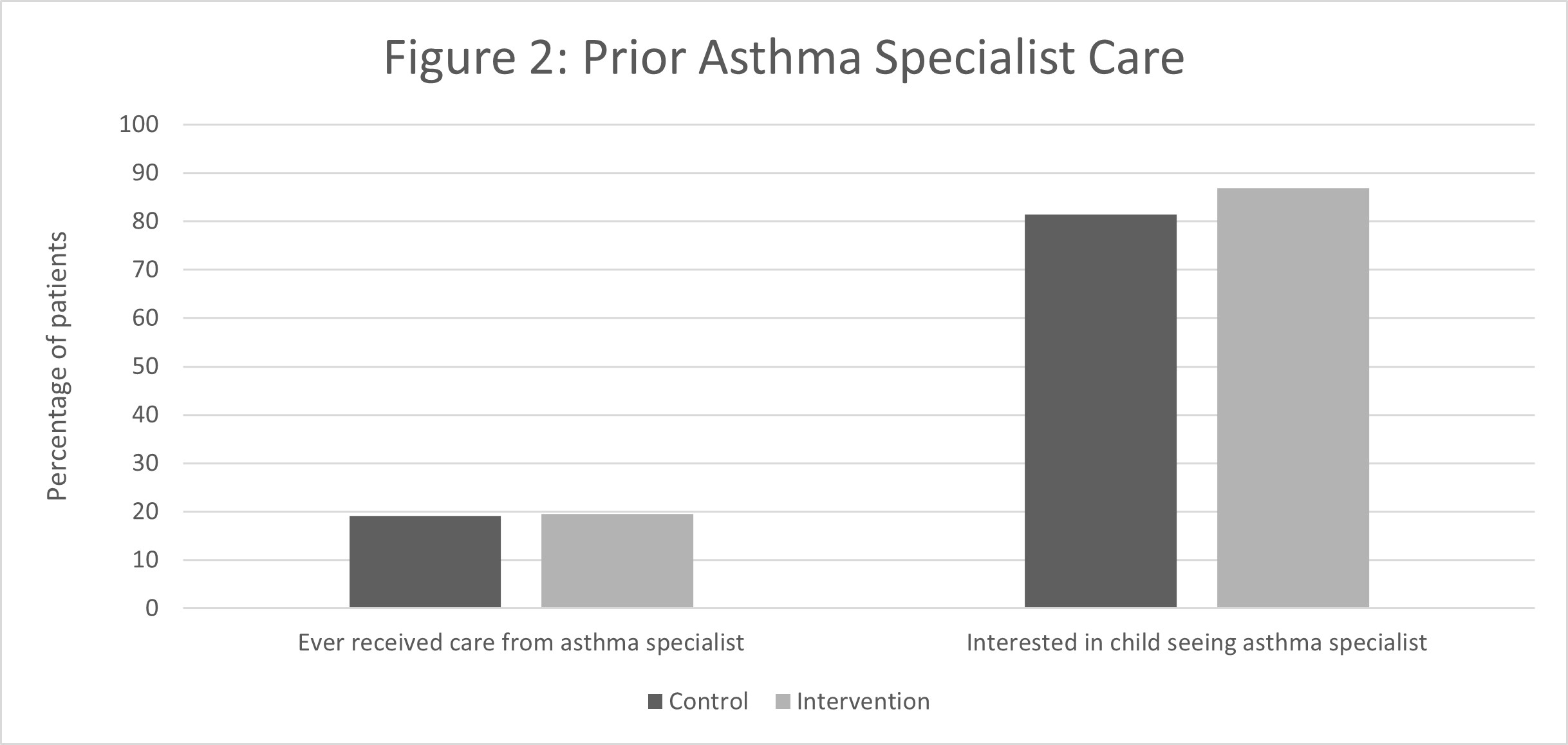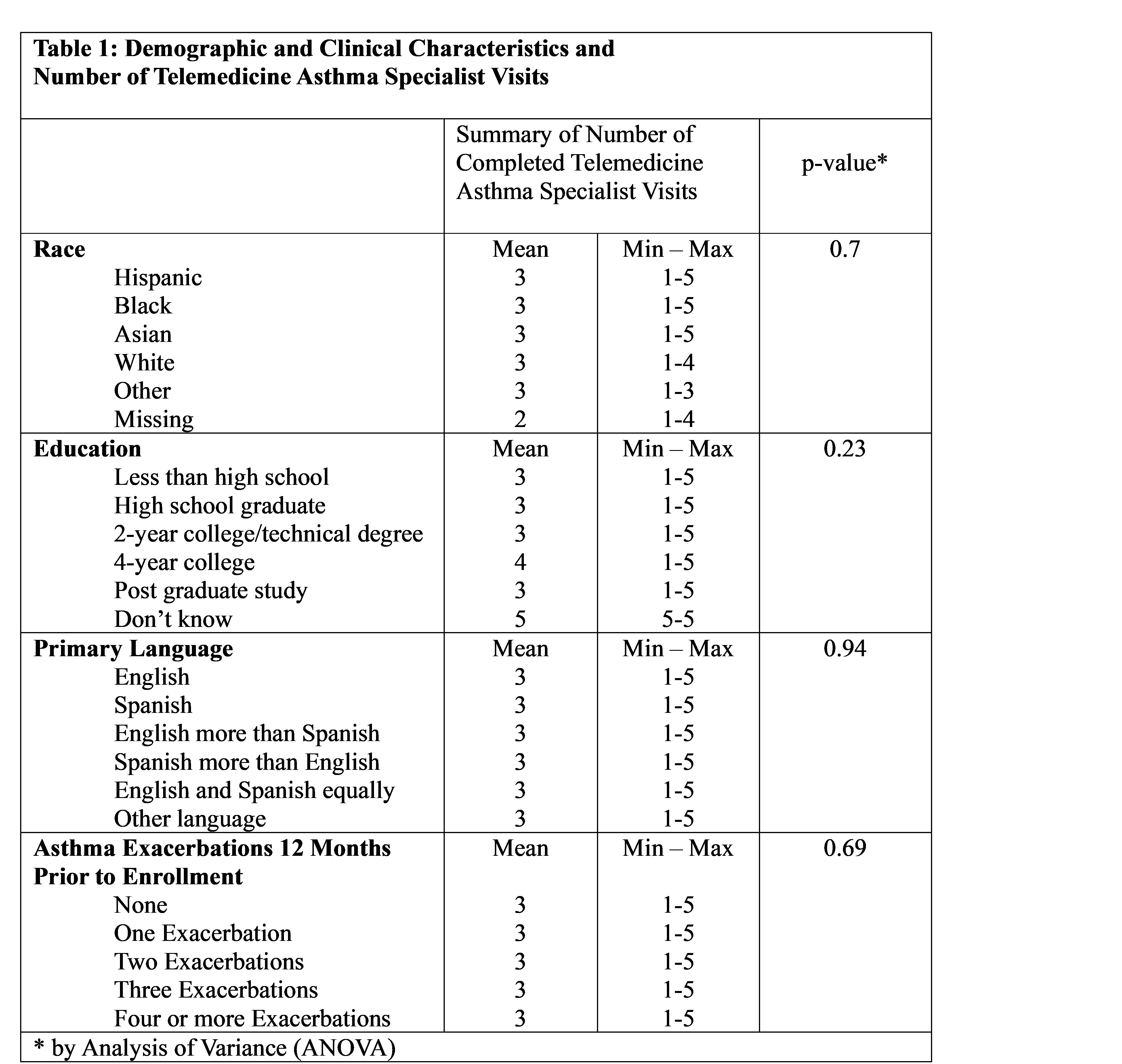Asthma
Session: Asthma 2
206 - Viability of asynchronous telemedicine to improve access to asthma specialist care following an emergency department (ED) visit
Friday, May 3, 2024
5:15 PM - 7:15 PM ET
Poster Number: 206
Publication Number: 206.89
Publication Number: 206.89

Bahareh Ravandi, MD
Clinical Assistant Professor of Pediatrics
Children's Hospital Los Angeles/University of Southern California
Los Angeles, California, United States
Presenting Author(s)
Background: Asthma guidelines recommend specialist care to improve outcomes for high-risk pediatric patients with uncontrolled asthma. However, few of these children ever receive specialist care, partly due to low rates of post-ED follow-up care with primary care providers. We developed an SMS text message (SMS-T) asynchronous telemedicine asthma specialist care program to provide frequent, accessible specialist follow-up for patients seen in the ED for uncontrolled asthma.
Objective: We sought to improve guideline-based asthma care by improving access to asthma specialists by enrollment in SMS-T asthma specialist care during an ED asthma encounter.
Design/Methods: This is a secondary analysis of data collected from June 2022 to May 2023 in a randomized clinical trial of SMS-T specialist follow-up care for children presenting for ED asthma care. We offered prospective participants SMS-T, involving: 1) asthma severity assessment during ED visit and via SMS text every 3 weeks. Intervention participants also received: 2) initiation of controller medications within 24 hours; 3) automated treatment plans based on adherence to controller medicines and asthma severity. We examined the frequency of completed SMS-T specialist visits from enrollment through 3 months post-ED visit, and how this related to baseline sociodemographic and clinical factors.
Results: 145 participants were consented and randomized (control = 68; intervention = 77), including 10% Black, 77% Hispanic and 92% on public health insurance. There were no significant sociodemographic or clinical differences between treatment groups. There was significant asthma morbidity reported by parents in the year prior to study enrollment (Figure 1). 72% reported no controller medication use. Though 84% expressed a desire for asthma specialist care, only 20% had ever been to an asthma specialist—and only half of those had been to one in the last year (Figure 2). 74% of participants completed at least one SMS-T asthma visit after the ED encounter and over 40% completed 3 or more visits. The mean number of SMS-T visits completed during the first 3 months was 3. The number of completed SMS-T asthma visits did not vary according to sociodemographic or clinical characteristics (Table 1).
Conclusion(s): SMS text message-based asynchronous telemedicine asthma specialist care is a viable means of meeting guideline recommendations for post- ED follow-up for patients with uncontrolled asthma. This modality of care may improve much needed access to specialist care. Additional research is needed to determine long term viability and the effects on clinical outcomes.
.jpg)


